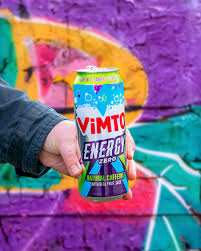For CPG brands looking to thrive in 2025, understanding and harnessing social proof isn’t just smart—it’s essential. Here’s why, along with practical insights for CPG brands.
By weaving social proof into your strategy, you’ll not only build a trustworthy brand but also drive demand, foster connection, and create a loyal customer base
In the crowded world of direct-to-consumer (DTC) marketing, standing out is no easy feat. UK shoppers are bombarded with choices, making trust a precious commodity. Enter social proof—a powerful tool that leverages real customer experiences to validate your brand, connect with your audience, and drive sales. For DTC brands looking to thrive in 2025, understanding and harnessing social proof isn’t just smart—it’s essential. Here’s why, along with practical insights for UK businesses.
Social Proof Builds Brand Trust
Trust is the foundation of any successful DTC brand, especially in a market where consumers can’t physically touch or try products before buying. Social proof—think customer reviews, testimonials, ratings, and endorsements—acts as a vote of confidence, reassuring shoppers that your brand delivers on its promises. For UK consumers, who value authenticity, a 2024 survey found that 88% trust online reviews as much as personal recommendations. A DTC skincare brand, for instance, might showcase five-star reviews on its website or share influencer endorsements on Instagram, instantly boosting credibility. By displaying real voices, you reduce scepticism and create a sense of reliability, encouraging hesitant shoppers to take the plunge.
People Identify with Customer Videos
Video content has become a cornerstone of social proof, especially for DTC brands targeting younger UK audiences like Gen Z and Millennials. Customer videos—unboxing clips, usage tutorials, or heartfelt testimonials—create an emotional connection that static text can’t match. Shoppers see themselves in these real people, whether it’s a busy Londoner raving about a time-saving meal kit or a fitness enthusiast in Manchester demonstrating a protein shake’s benefits. Platforms like TikTok and Instagram Reels amplify this effect, with authentic, user-generated content (UGC) often going viral. For example, a DTC fashion brand might encourage customers to share outfit-of-the-day videos wearing its apparel, fostering a sense of community and relatability that drives engagement and loyalty.
Social Proof Shows Demand for Your Product
When potential customers see others queuing up to buy your product, it signals demand—and that’s a powerful motivator. Social proof, such as high review counts, bestseller badges, or social media buzz, creates a “fear of missing out” (FOMO) that can propel sales. For a UK-based DTC supplement brand, displaying “Over 10,000 five-star reviews” on its website or highlighting trending hashtags on X (like #HealthyLivingUK) demonstrates popularity and urgency. This not only attracts new shoppers but also reinforces the perception that your product is a must-have, tapping into the herd mentality that drives consumer behaviour. In a competitive market, this demand signal can be the difference between a one-time purchase and a loyal customer base.
Beyond the Basics: Other Ways Social Proof Boosts DTC Brands
Social proof extends far beyond reviews and videos, offering DTC brands additional ways to build credibility and growth. Celebrity endorsements, for instance, can supercharge trust—imagine a UK fitness influencer praising a protein bar on Instagram, instantly aligning the brand with authority and aspiration. Case studies or user-generated photos on platforms like Pinterest can showcase real-life applications, while social media follower counts or engagement metrics (e.g., likes, shares) signal a brand’s popularity. Data from industry reports shows that DTC brands with robust social proof see a 58% higher conversion rate, as it reduces perceived risk and builds confidence.
Moreover, social proof fosters community, a key driver for UK DTC brands in niche markets like eco-friendly products or wellness. A brand like a sustainable deodorant company might share customer stories on its blog or host live Q&As on Instagram, creating a loyal tribe that feels connected to its mission. This sense of belonging not only drives repeat purchases but also turns customers into advocates, amplifying word-of-mouth marketing across channels.
How UK DTC Brands Can Leverage Social Proof
For UK DTC businesses, social proof isn’t optional—it’s a growth engine. Start by encouraging reviews and ratings on your website and platforms like Trustpilot, offering incentives like discounts for feedback. Invest in video content, partnering with micro-influencers or running UGC campaigns to create authentic, relatable content. Highlight demand through badges, trending hashtags, or countdown timers for limited-edition products. Finally, ensure consistency across touchpoints—whether on your website, social media, or email campaigns—to reinforce trust and engagement.
By weaving social proof into your strategy, you’ll not only build a trustworthy brand but also drive demand, foster connection, and create a loyal customer base. In 2025, it’s not just about what you sell—it’s about who believes in you, and social proof is the key to making that happen.




